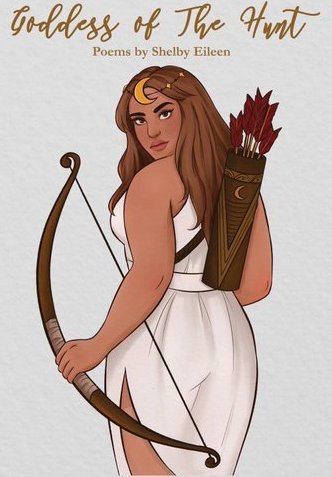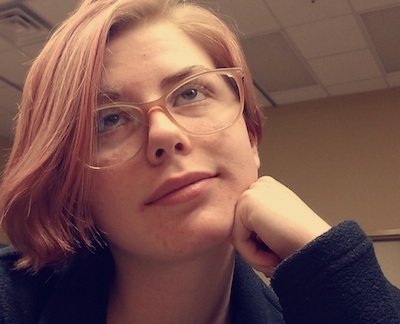
Book cover by Izza Thapa
Goddess of the Hunt
Shelby Eileen
Amazon, 2019
Kindle: 105 pages; $2.99
The “A” Isn’t Silent
Netflix and the New York Times’ bestselling lists are being filled with new stories about LGBTQ+ characters and their struggles. The queer community never imagined accurate, unsexualized content being made for the queer community, but every year, the creative hubs of the world create more media for the community to consume.
While the content is starting to become more inclusive and hold the media to the same standards it has shown cisgender-heterosexual media, there are some parts of the community that are missing out, specifically the aromantic (people who do not experience romantic attraction) and asexual (people who do not experience sexual attraction) parts. As a person in the asexual community, I am hyperaware of the focus and seeming obsession everyone has with sexual activity, and as an empathic person, I can imagine the frustrations of the aromantic community with romance being a basis of society.
“There must be, out there, ways to die for someone that do not mean altruistic, all-encompassing, romantic, sexual, love.”
We can thank the lack of awareness of these communities and the gatekeeping existing in, and out, of the LGBTQ+ community. Luckily, social media platforms like Twitter offer venues for queer voices. Twitter is a text-based platform for social networking with fans, celebrities, and world leaders. I sometimes peruse Twitter for book recommendations, and found Goddess of the Hunt, a collection of poems by Shelby Eileen, there.
Eileen has published six collections of poems, including soft in the middle and sunfish. They write about identity, sexuality, body image, and their experiences as an asexual individual. Their collection Goddess of the Hunt is about the Greek goddess Artemis and her relation to women, aromantic individuals, asexual individuals, and anyone struggling under the expectations embedded in tradition.
“in the flames I have seen there are more like us . . . you may rest here knowing/you are not alone here.”
The collection is a perfect introduction to aromantic and asexual cultures and experiences, because the subject matter provides people not asexual or aromantic a connection to the material. First there are the highly recognizable characters of classical myth, then there is Artemis, a character of strong femininity and independence. Despite the overuse of Greek mythology in Western society, Eileen makes it work to their advantage—commenting on current society and the oversexualization of Greek characters.
The collection is a declaration of female autonomy over her body and fate—not being confined to the role of being so-and-so’s wife. It is a celebration of how a woman can be separated from her relationships to men and children. Artemis is independent from her relationships to men—Apollo, her twin, is the only exception. In fact, men are almost nonexistent throughout the narrative, only referenced in passing. I admire this choice. The author wants to keep the male narrative out of the collection as much as possible. It sets the collection apart from the patriarchal set of narratives outlined in the Greek epics.
“Apollo, who was her equal, and her opposite, the golden sun to her silver moon.”
Eileen wants you to know that women do not have to be mothers or wives to gain your respect; they can be warriors and every bit as powerful and important as men. They use the characters beautifully in an expression of support and pressure.
The best part of this book is there is no insinuation that not being part of the community is bad. Eileen just wants the reader to further validate the other types of love that we take for granted and belittle every day because, for some people, the other types of love are stronger and more important.
I love this collection because it gives the world something it is lacking. Much media derived from Greek mythology reeks of heteronormativity, and this book challenges that tendency with the use of Artemis. There is this notion in media that queer love and stories have to be new stories, but we deserve the same stories that cisgender, heterosexual, allosexual characters have been replaying for years.
“but love is/impatient/love is uncomfortable/love is too hot/and too cold at the same time . . . love is luxurious/it is unnecessary”
We want a Cinderella moment. We want a Christmas fairytale. We want a star-crossed lovers trope. We want to be included and seen, because for so long we were not. The main purpose of this work is to give us a moment and to create a community, and I believe if it is properly spread to people—all humans, all females, all aromantic individuals, all asexual individuals—we will get that.
“‘I don’t bring people together because they need to be completed. You are a Goddess, whole, Artemis. Trust me to know this; love happens to some people, but it does not have to happen to you.’”

Charlie Finger studied English at Tusculum University and is currently studying Creative Writing at Tennessee Technological University. In the next few years, they plan obtain a bachelor’s degree, publish several works, and support other artists. They can be reached at marissafinger@yahoo.com.
